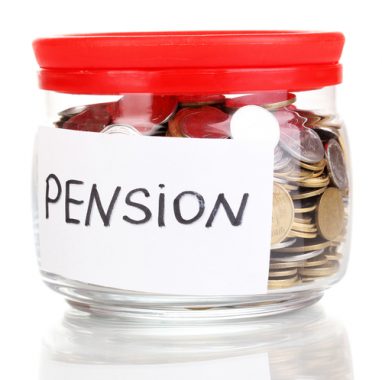BMA in daily talks over ‘extremely damaging’ Scottish pensions costs hikes

The Scottish Government has not yet committed to fully funding hikes in the employer pensions contribution rate, it has been revealed.
The BMA said it was in ‘daily’ talks on the matter, which it warned could be ‘extremely damaging’ to practices.
In December, the Scottish Public Pensions Agency announced that the current rate of employer pension contributions would rise from 14.9% to 20.9% from 1 April to match the increase in benefit costs.
According to public finance and digital economy minister Kate Forbes, the UK Government has committed to ‘provide funding to fully cover the increased pension costs for NHS employers’.
However, in a letter sent to the Health and Sport Committee last week she argued that the funding will not be enough to meet the costs and that the Scottish Government will have to consider ‘how the shortfall will be met’.
BMA Scottish GP Committee chair Dr Andrew Buist warned the Government that if GPs were forced to pay for the increase it could have detrimental impacts on recruitment and retention.
He said: ‘This continues to be a real concern for our members. I have been clear in my discussions with the Scottish Government that forcing GPs to meet these extra costs, without the full additional funding, could have an extremely damaging effect on recruitment and retention – not to mention the sustainability of practices.
‘SGPC is in daily contact with the Scottish Government on this and is pushing them to provide details on a solution that benefits and protects members before any payments need to be made next month.’
In her letter, Ms Forbes wrote: ‘The UK Government had committed to provide funding to fully cover the increased pension costs for NHS employers, but current indications are that the Health consequentials that Scotland will receive will not meet 100% of the costs that we will face.
‘We have already made and will continue to make clear to the UK Government that we expect this funding to meet all of the additional costs for the NHS in Scotland, including additional costs for independent contractors and other employers such as hospices and charities that are members of the NHS pension scheme.’
She continued: ‘The cabinet secretary for finance, economy and fair work wrote to the chancellor of the exchequer before the Spring Statement and made it clear that “[the increases create] unsustainable pressures for the Scottish Government and the level of proposed HMT funding clearly does not meet the additional costs for any of the pension schemes in Scotland – including for the NHS where the UK Government explicitly committed to fund 100% of the cost increases.
‘Failure to fully fund these costs will have a significant and detrimental impact on the delivery of essential front line services in Scotland.’
Discussing the NHS superannuation and pension schemes in Parliament last week, Health and Sport Committee members said the increase will ‘dramatically’ affect GPs, potentially forcing them to cut their staff in the long term.
Labour MP for Highlands and Islands David Stewart said: ‘I am concerned about the 6% jump next month in the employer contribution. Many members will have received correspondence on the matter, particularly from general practitioners, who will be dramatically affected by the costs for their staff, such as receptionists.
‘It might result in redundancies in the longer term. Some general practices might not be able to continue and the worry then is that they go back under health board control.’
He added: ‘There are particular issues in rural areas; recruitment and retention of GPs might be affected; and there is also an issue with non-NHS employees such as those in the hospice movement. […] Obviously, these are primarily reserved issues, but these changes, coming on top of the changes to the lifetime and annual allowances, are hitting GPs and consultants.’
Echoing his comments, SNP MP for Glasgow Kelvin Sandra White said: ‘I, too, have concerns about the regulations that I have raised previously. David Stewart is correct that they will affect not just GPs but receptionists and so on. They could also affect charities, and I have great concerns about that.’
Pulse July survey
Take our July 2025 survey to potentially win £1.000 worth of tokens












